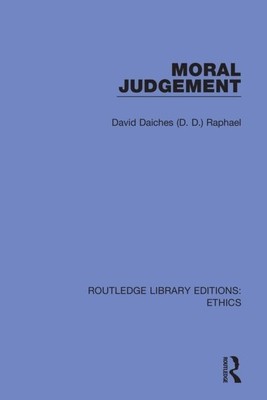
- We will send in 10–14 business days.
- SAVE -10% with code: EXTRA
Reviews
Description
Originally published in 1955, this book covers most of the problems of moral philosophy but concentrates on two of them: the criterion of right action and the nature of moral judgment. Rejecting Utilitarianism, it shows how principles of moral obligation may be unified under Kant's formula of treating people as ends-in-themselves. This formula is interpreted in terms of a new, naturalistic theory of moral obligation. Throughout the book the social reference of ethics is emphasized and moral obligation is discussed in relation to rights, justice, liberty and equality.
EXTRA 10 % discount with code: EXTRA
The promotion ends in 23d.07:37:07
The discount code is valid when purchasing from 10 €. Discounts do not stack.
- Author: Raphael
- Publisher: Routledge
- ISBN-10: 0367509016
- ISBN-13: 9780367509019
- Format: 15.6 x 23.4 x 1.2 cm, minkšti viršeliai
- Language: English English
Originally published in 1955, this book covers most of the problems of moral philosophy but concentrates on two of them: the criterion of right action and the nature of moral judgment. Rejecting Utilitarianism, it shows how principles of moral obligation may be unified under Kant's formula of treating people as ends-in-themselves. This formula is interpreted in terms of a new, naturalistic theory of moral obligation. Throughout the book the social reference of ethics is emphasized and moral obligation is discussed in relation to rights, justice, liberty and equality.


Reviews